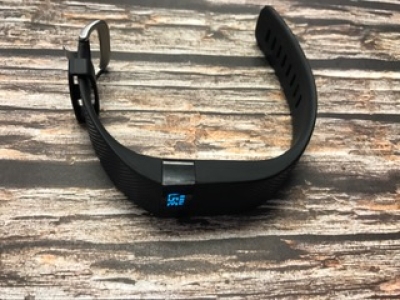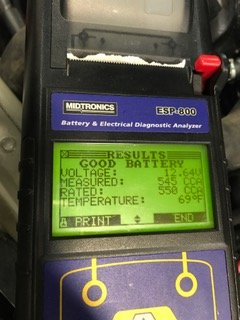
I have a Fitbit that I may be mildly obsessed with. It was charging one day and I left the house and arrived at work without it. Walking anywhere seemed so pointless. No steps counted. No way to tell if I was going to make my 250 steps every hour that day. Did I even sleep well the night before? My Fitbit wasn’t there to tell me. I’d like to admit I’m exaggerating but I’m not.
We have several scanners that have the capability to let us know the health of certain parts of your vehicle. One of these that’s very important is your car battery health. I like seeing the printout from a battery test, especially when it’s bad. It shows the voltage and rates the battery’s health. Here’s my reasoning.
It’s cold out. Having your battery fail in Michigan in February will probably be miserable. You could have avoided this by having your battery tested periodically. It doesn’t take long and it’s painless. Finding out that your battery is weak is an opportunity to say, “Hey, I want to get in my car and have it start! I’m going to have my battery replaced.” Compare it to the feeling of turning your key and having your car try so hard to start but it just can’t. Finding someone to jump start your car and hoping they have jumper cables is not nearly as much fun as being warm and dry in your running car. So that little printed piece of paper is worth the five minute battery test.

We recommend having your battery checked roughly every two years when it’s newer. If you’re not sure of the age, have it checked. If it’s an older battery, have it checked more often.
The battery test is like a Fitbit for your car’s battery. Sure, you can’t strap on your battery and let it run continuously— but it’s simple enough that you can utilize the information it produces to help you see what your batteries health is and, if necessary, make changes. Next time you are having your car serviced, ask for a battery test so you know the health of your car’s energy source.